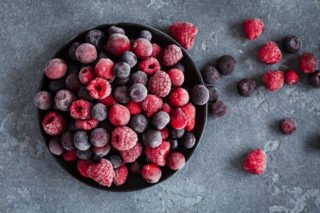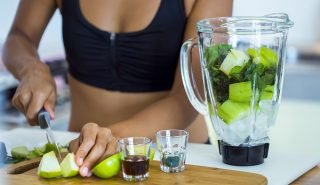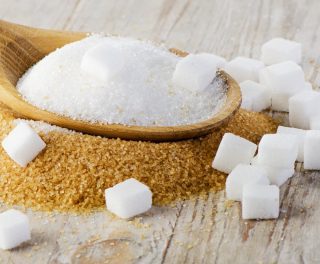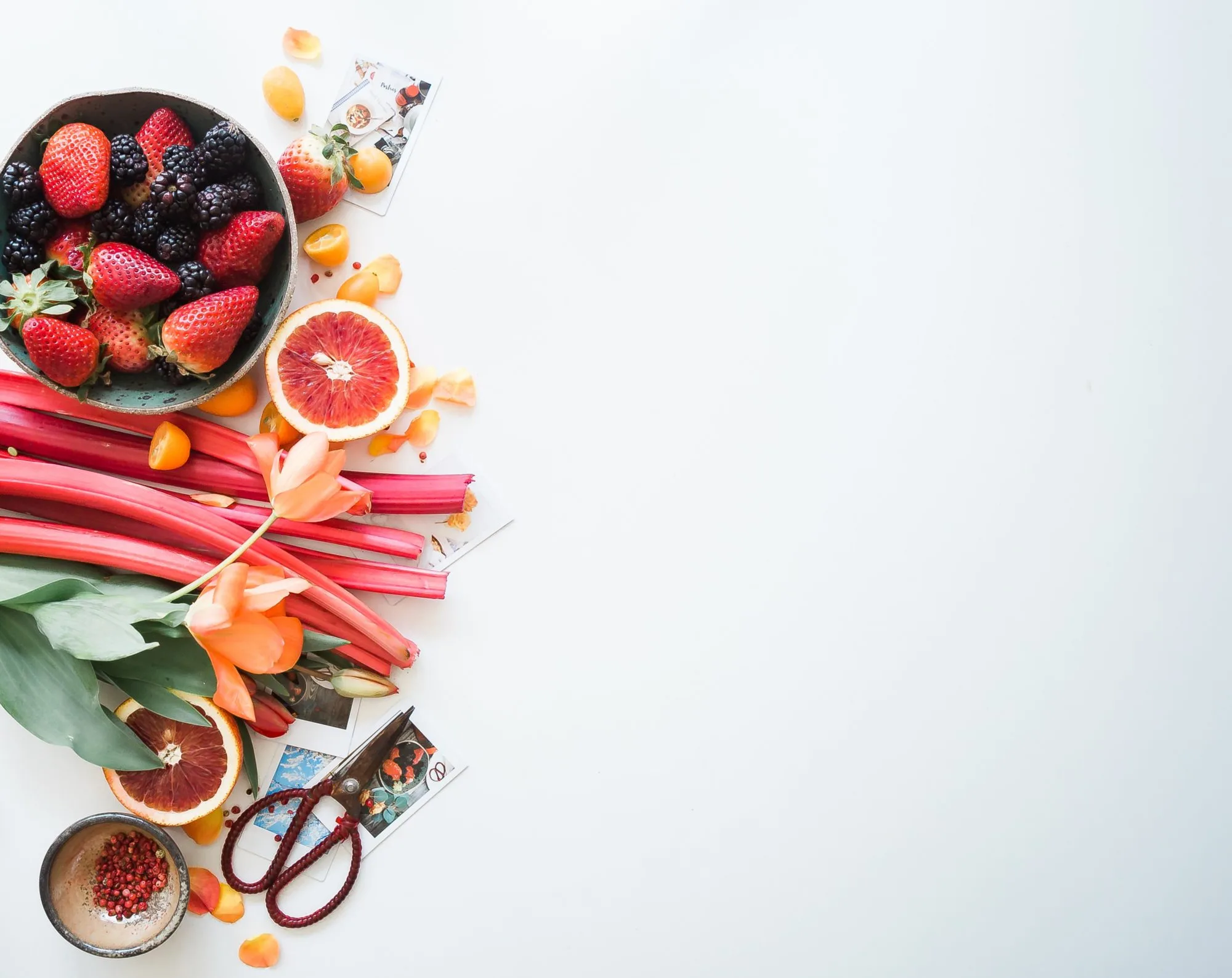When did nutrition become so complicated? We’ve all heard that saying, “don’t believe everything you read” and in the world of nutrition, it couldn’t be any truer. Today, we have so much access to nutritional information, and whole that should be a good thing, it often leads us down a rabbit hole of crazy diets, fads, and cleanses. As everyone has a different opinion around nutrition and diets, it’s easy for some nutrition myths to quickly grow into strongly held beliefs.
With so many mixed messages out there, you may find it hard to figure out which advice is worth following. That said, when it comes to nutrition, it’s important to separate fact from fiction, especially if you want to protect your health. So here are the most common nutritional myths busted.
13 Nutrition myths busted
Myth #1: All fats are bad
If there’s one word that’s gotten a bad rep in nutrition, it’s definitely fats. I mean eating fat will make me fat, right? Well, not exactly. The fact is, the body needs fats to function normally so you should get all the facts before cutting them out of your diet.
For one, a study published in The Lancet Diabetes & Endocrinology journal found that high-fat diets were just as effective, if not more, than low-fat diets when it came to weight loss. What’s more, a separate study published in the Journal of Clinical Nutrition found that low-fat diets may increase the risk for metabolic syndrome as well as heart disease. However, it is also important to consider what type of fat you’re looking to avoid.
Types of fat
There are three types of fat that we should all be aware of – healthy fats, saturated fats, and trans fats. ![fat loss [longevity live]](https://longevitylive.com/wp-content/uploads/2019/06/avocado-close-up-colors-557659-320x213.jpg)
Healthy fats can be found in a range of foods and the body uses them for energy and other essential processes. They can be found in olive oil, avocados, seeds, and nuts. Saturated fats are a little tricky as they’ve been found to increase cholesterol levels, which can then increase one’s risk for heart disease. As a result, it’s important to eat them in moderation. Saturated fats can be found in eggs, butter, cheese, and meat.
If you really want to cut out fat from your diet, this is the type of fat you should put your focus on. Trans fats have been shown to be extremely detrimental to your health and they can even increase your risk of mortality (1).
Myth #2: Carbs are the enemy
Just like fats, carbs have also been vilified in the food industry, becoming the new enemy. The body needs carbohydrates not only for energy but also for optimal brain function. The fact is, just like fats, your choice of carbs can either be good or bad for your health.
Carbohydrates can either come as refined or whole. When you think of cutting back on carbs, you’re definitely thinking of the former. Refined carbs can be found in processed foods such as cakes, cookies, white bread, pasta, and doughnuts. Eating these foods in excess can increase your risk of developing health problems like heart disease and diabetes so it would make sense as to why you would want to cut back on them.
In fact, if you really want to protect your health, you should cut back on refined carbs and increase your intake of good carbs. Good carbohydrates are rich in fiber and other essential vitamins and minerals that can help the body. The best part is that unlike refined carbs, good carbs can help keep you feeling fuller for longer and this then reduces the chances of you overeating. Good carbs include vegetables, fruit, legumes, and whole grains such as oats, brown rice, and whole-grain bread.
Myth #3: Everyone should be gluten-free
Despite its vilification in the media, understand this: gluten is not the enemy.
Gluten is a group of proteins found in many everyday products such as pasta, bread, pastries, wheat, and even beer. So where does gluten hate come from?
![non-meat [longevity live]](https://longevitylive.com/wp-content/uploads/2019/06/appetizer-beef-bread-357746-320x213.jpg) Well, as mentioned, gluten is a type of protein found in various foods. Unfortunately, there are two groups of people who cannot consume gluten and they are those with celiac disease and gluten intolerance.
Well, as mentioned, gluten is a type of protein found in various foods. Unfortunately, there are two groups of people who cannot consume gluten and they are those with celiac disease and gluten intolerance.
Celiac disease is an autoimmune condition in which the body cannot properly digest gluten, and consuming it can cause damage to the small intestine, leading to more health problems. A gluten intolerance, on the other hand, may cause unwanted symptoms such as abdominal distress, and sometimes fatigue. That said, if you haven’t been diagnosed with either of these conditions, then you really shouldn’t be following a gluten-free diet because there are probably no benefits.
Yes, gluten-free grains like quinoa and millet can benefit the body, but it’s also important to know that many mainstream gluten-free products may contain added sugars and calories. What’s more, going gluten-free for any reason that isn’t medical may result in a diet that’s lacking in vitamins, minerals, and fiber.
Myth #4: You should drink 8-10 glasses of water every day
Yes, water is essential for life and we need to stay hydrated at all times. However, how much water do we need to be drinking a day?
How much fluid each person needs varies on your activity level and your environment. If you’re constantly active in an environment with soaring temperatures, then, of course, you’ll need to drink more water than someone who spends their days with a book in the coolest part of the house.
Let your thirst guide you when it comes to drinking water. Another way to know if you’re properly hydrated is to look at your urine. If it looks pale, then you’re fine but if it’s darker then you may need to up your water intake.
Also, you don’t need to look at only water to stay hydrated. You can munch on water-rich foods such as watermelons and cucumbers and even enjoy a cup of green tea every few hours.
Myth #5: Low-fat and fat-free foods are better for you
As mentioned, fat has been seen as a dietary no-no and this has resulted in the rise of low-fat and fat-free products on shelves.
Aside from the fact that fat isn’t the dietary villain so many people think it is, low fat and fat-free products are more harmful than you might think. Here’s the thing – fat makes things taste good, so removing it won’t exactly be satisfying to the palette. Food manufacturers know this which is why, when they remove fat from food, they replace it by adding more sugar, flour, salt, and other ingredients in an effort to maintain the original taste.
If you really want low-fat or fat-free products, then it’s important that you get into the habit of reading nutritional labels. Why don’t you compare the regular and the low-fat/fat-free versions of the product and see how well their fat, sugar, and caloric content differ?
Myth #6: Fresh foods are healthier than frozen or canned
In the perfect world, we’ll all be spending our Saturday afternoon picking up fresh and locally grown produce. However, as this pandemic has shown, we don’t live in a perfect world.
Yes, fresh is best but that doesn’t mean that frozen and canned produce are any less nutritious for the body.

Firstly, fresh is a bit of a loose term. This is because fresh produce still has to travel for days across long distances before hitting the shelves, and it can lose nutrients along the way. Whereas produce that is frozen is usually packaged shortly after it’s been picked.
Also, if like me you’re sporadic with your cooking, you don’t have to worry about your frozen or canned produce going off. In regards to canned foods, the only concern would be the preservatives used. Make sure to read the label and watch out for any added sugars or salts. It would be advisable to rinse your canned items before using them.
Myth #7: Don’t eat eggs
Eggs are a breakfast favorite, so why the dislike?
While they may be a good source of protein, vitamin D, and iron, eggs also contain cholesterol, with one egg yolk providing about 200mg of cholesterol (the recommended daily intake is 300mg).
Cholesterol is the fatty stuff in our blood that can increase the risk for heart attacks and heart disease as in excess, it can lead to clogged arteries.
Now, as alarming as this sounds, this doesn’t mean that you can’t enjoy eggs – in moderation of course.
In no way am I suggesting a daily breakfast that consists of three-egg omelets. If you’re a fan of eggs, eat no more than four egg yolks a week.
Myth #8: Detox diets are the best cleanses
When it comes to detoxing, your body doesn’t need any extra help. It has your kidneys and your liver, both of which are the ultimate detox system, and treating them right will help ensure that detoxification takes place. 
The fact is, all these fasting and juice cleanses that claim to help detox the body can cause more harm than good. This is because they can deprive the body of essential nutrients, leading to health problems.
Myth #9: Eating 6 small meals a day can lead to weight loss
Some people believe that eating smaller frequent meals can boost your metabolism and encourage weight loss. However, this is far from true.
A study published in the British Journal of Nutrition found that frequent smaller meals did not result in faster metabolism or weight loss. The fact of the matter is, not all calories are created equal. So what we eat is far more important than how often we eat.
Myth #10: Diet soda is healthier
You may think you’re doing your health a favor when you reach for the diet version of your favorite soda, but that couldn’t be further from the truth.
![]() The fact is, diet sodas have been linked to an increased risk for type II diabetes, obesity, and heart disease. If you’re having a hard time quitting soda, try opting for carbonated water.
The fact is, diet sodas have been linked to an increased risk for type II diabetes, obesity, and heart disease. If you’re having a hard time quitting soda, try opting for carbonated water.
Myth #11: Vegetarians and Vegans Don’t Eat Enough Protein
It’s a myth that will likely plague plant-based eaters until the end of time. A well-balanced and planned-out plant-based diet can provide the body with all the nutrients that it needs.
Plant-based sources that can provide the body with all the necessary protein include legumes, quinoa, beans, lentils, and chickpeas.
Myth #12: Brown sugar is better than white sugar
This may be hard to believe but there is no nutritional difference between brown and white sugar. Brown sugar is basically white granulated sugar with added molasses.
Whether it’s brown sugar or white sugar, you should always watch your sugar intake.
Myth #13: Eating late at night will make you fat
Your body doesn’t know what time it is. So, it’s certainly not going to punish you for eating after a certain hour. What does matter, at any hour, is what you’re eating.
So why are late dinners associated with weight gain? Well, it may have to do with the fact that, when we eat later in the evening, we often go for high-calorie foods such as greasy takeouts and ice cream.
Conclusion
The wellness world is overwhelmed with nutrition myths, so it’s important to stay updated and educate yourself. Separating fact from fiction can help you make decisions for your health.



![women [longevity live]](https://longevitylive.com/wp-content/uploads/2020/01/photo-of-women-walking-down-the-street-1116984-100x100.jpg)










